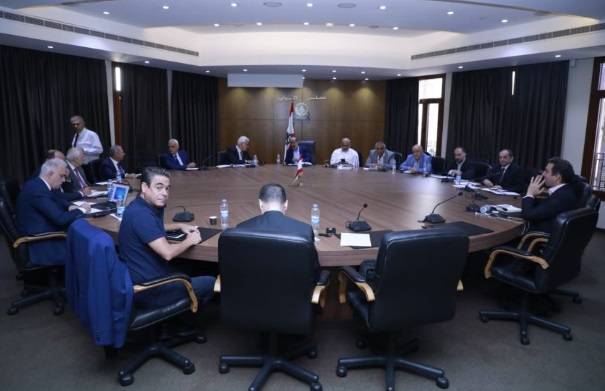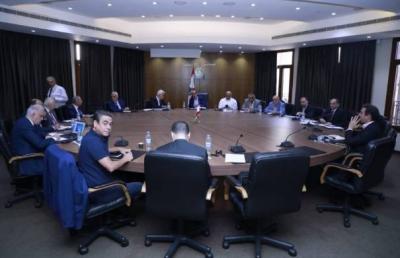The Media and Communications Committee held a session this Wednesday morning at the parliament, chaired by the committee's head, MP Ibrahim Moussaoui, and attended by the Minister of Communications in the caretaker government, Johnny Qaram, and other members of parliament.
Moussaoui stated after the session: "The Media and Communications Committee met today and discussed several matters. However, initially, I must express our sadness and condolences to the Moroccan and Libyan peoples due to the environmental disasters that have occurred. We empathize with the two nations and pray to God Almighty to be merciful to His servants and to assist those who can offer help in this difficult time."
He added, "There is a matter I would like to clarify before public opinion regarding the media law. The media law has officially completed its study in the Media and Communications Committee a long time ago. The Committee has always been aligned with the 'Loyalty to the Resistance' bloc, from my colleague Hassan Fadlallah to my colleague Hussein al-Haj Hasan, and now it is under my presidency. The law was thoroughly discussed in this committee, and all amendments and discussions were included, but it was referred to the Administrative and Justice Committee, which has caused some confusion. Where is it? This law was retrieved by Minister of Information, Mr. Ziad Al-Makari, for him to review and return it to the Administrative and Justice Committee. If we wish to review it, we will do so consultatively according to the applicable laws. There should be a decree for its retrieval, otherwise there will be informal handling of this matter."
He continued, "Today's session focused primarily on networks established in violation of the laws, specifically what is termed illegal internet. I would like to commend Chairwoman Zainab Hamoud, who, based on her repeated studies and research that lasted several months, led us to decree number 9458 dated June 24, 2022. This decree established a mechanism for implementation, and the ministry is currently working on this mechanism. Of course, there have been issues in certain areas. Some have cooperated, while mistakes have occurred. The minister has shown goodwill in discussing this matter, and today there is a proposed mechanism to regulate this sector in a way that yields the highest levels of financial returns for the state, so that illegal internet networks do not remain 'out of control', thereby establishing a form of pricing control on citizens."
He emphasized, "It is unreasonable for Ogero network to provide services at a specified price, while others manipulate prices through internet networks. We acknowledge that these networks have filled a gap when the state could not reach certain areas. In remote villages, distributors have been able to provide essential services. If the ministry wants to cut off services, it should do so in areas where networks exist and can provide service to citizens."
He indicated, "The focus is on safeguarding public funds and increasing state revenues. There is a systematic effort to establish a practical mechanism where the equation is win-win, meaning everyone is satisfied. These networks for a certain period should continue their work and provide the required and appropriate returns to the state while simultaneously offering citizens service at reasonable prices. We told the minister that when the tariffs were raised sevenfold, he responded that they still remain cheaper than private companies, yet we observed that they increased fivefold or five and a half times, not seven. We raised the issue of the management approach in place; the minister and his companions expressed their confidence in the work while displaying distrust in the performance of certain directors and departments within the ministry, and we will follow up on this."




